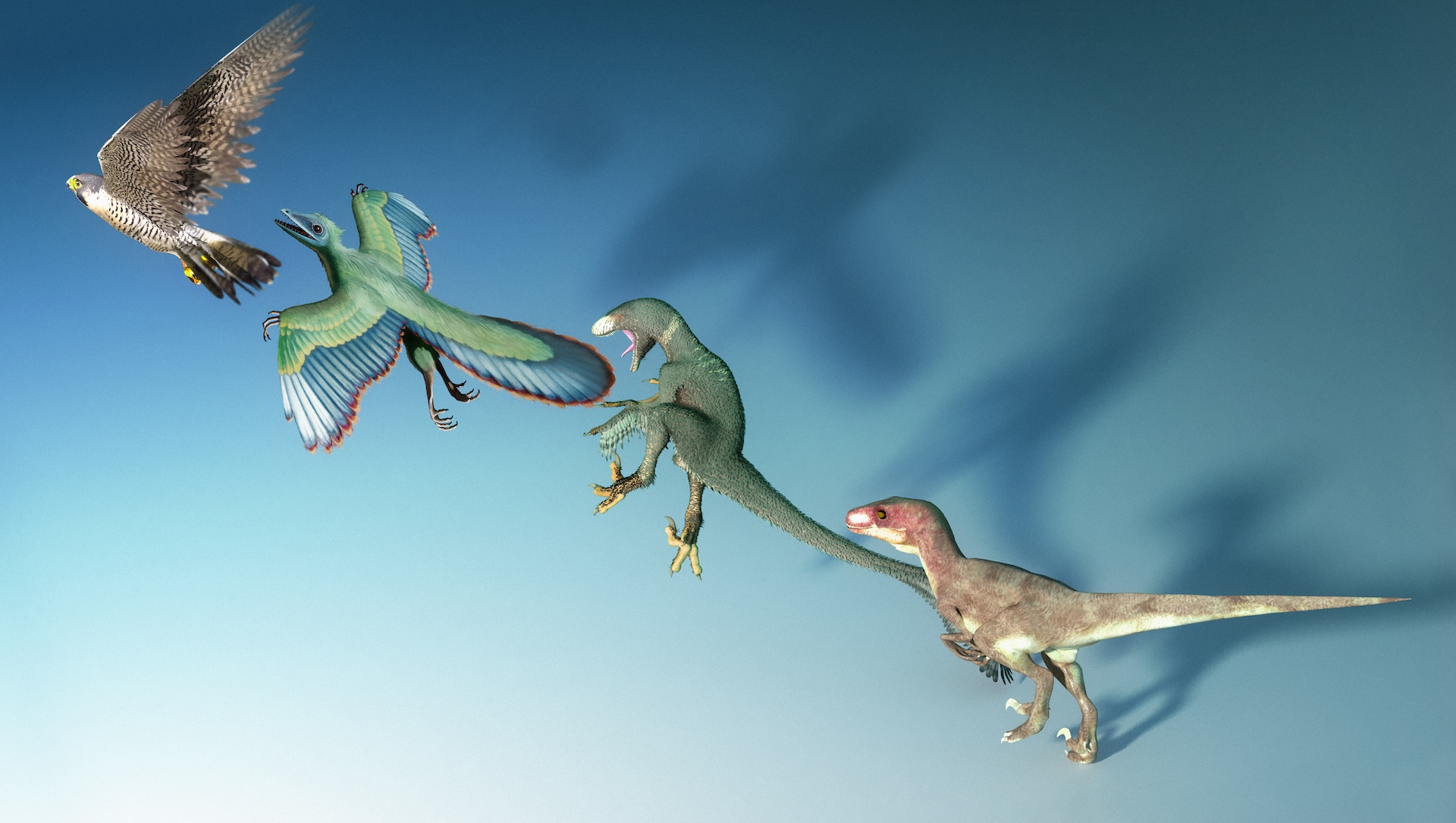
When Charles Darwin developed his theory of evolution in the mid-19th century, he figured this fundamental process took place very slowly over geological timescales, taking millions of years.
But is this correct, or can evolution happen more quickly? How fast can evolution work?
First, let's define evolution, which is the process by which a species' genes or physical appearance changes gradually over time. The driving force is natural selection, in which individuals with more beneficial traits survive and reproduce, sending those traits to the next generation. Over many generations, this is known as adaptive evolution.
Combined, natural selection and adaptive evolution allow a "species to track changes in its environment," said Timothée Bonnet, an evolutionary biologist at the French National Center for Scientific Research and La Rochelle University.
In the famous example of Darwin's finches on the Galápagos Islands, different species evolved different beak shapes and sizes within a few decades to specialize in feeding on different types of nuts and insects. This finding made waves following the publication of the Pulitzer Prize-winning book, "The Beak of the Finch: A Story of Evolution in Our Time" (Knopf, 1994).
Related: Which animals are most likely to survive climate change?
Then, there's a third component: speciation. This is when one species branches off into two distinct species over time. Bonnet said this happens much more slowly than adaptive evolution.
By the early to mid-20th century, scientists realized that evolution can happen much more quickly than Darwin ever thought by using the theory of natural selection to make crops more palatable in as few as seven years and domesticate dogs over a few generations. "We made evolution happen," Bonnet told Live Science. "We could see that the change happening at this scale of a few generations (can) be quite dramatic."
This artificial selection accelerated evolution, but how fast can the process work naturally?
To find out, Bonnet and an international team of researchers analyzed decades of genetic data for 19 bird and mammal species. They found that the rate of adaptive evolution was two to four times faster than previous estimates. More specifically, each generation increased its survival and reproduction by 18.5%, on average, under completely stable conditions.
This means that if survival and reproduction decreased by a third, adaptive evolution would help a population recover in three to seven generations. Bighorn sheep (Ovis canadensis) evolved horns that were 0.7 inches (2 centimeters) shorter than before over 20 years, or three generations, because hunters had targeted those with larger horns. Snow voles (Chionomys nivalis) shrank by up to 0.1 ounces (3 grams) over 10 years, or eight generations, probably because of changes in snowfall.
But in nature, conditions are never stable.
"We have populations adapting, but we don't know what they are adapting to," Bonnet said. He explained that environmental change, competition, diseases and humans can all instigate rapid evolution. "Evolution is there to stabilize, or at least buffer a bit, the changes that are happening in the environment," he added.
Climate change is another major driver of adaptive evolution, Bonnet said, but scientists aren't quite sure whether populations will keep up. As temperatures, weather patterns and sea level rise have changed, some species have responded by moving to cooler places or adapting to more saline conditions. That said, environments could be deteriorating faster than evolution can work, he said.
"Evolution is always occurring," James Stroud, an evolutionary biologist at Georgia Institute of Technology, told Live Science.
If natural selection is strong, then "why don't things evolve quickly all the time?" Stroud wondered, leading him to publish research on the topic. He and colleagues found that natural selection in tropical lizards on short timescales (generations or years) was very dynamic but canceled out on longer timescales (millions of years) — leading to virtually no change.
Rate of change
How do scientists even measure evolutionary rates? Philip Gingerich, a paleontologist at University of Michigan, developed one method, using a unit of measurement appropriately called a darwin. He found that evolution works slowly on long timescales and quickly on shorter ones.
"Rates of evolution can be fantastically fast because of that constant environmental change," Michael Benton, a vertebrate paleontologist at the University of Bristol, told Live Science. But "the shorter the time scale, the faster the rate, and this is after you have corrected for time," he added.
Stroud and his colleagues at the University of Miami are now using nonnative green iguanas as a case study for rapid evolution. The warm-adapted lizards are known to freeze and fall out of trees during Miami's infrequent cold snaps.
"What we saw is that some die, but some survive — and the ones that survive can actually tolerate colder temperatures than the ones we measured before," Stroud said. "So it suggests that evolution might be happening."
The fossil record holds some clues, too. In the Triassic period (251.9 million to 201.3 million years ago), after the Permian extinction, large marine reptiles called ichthyosaurs evolved to be gigantic in less than 3 million years — more quickly than whales did — because they became the ocean's top predators.
Factors such as adjusting to new conditions, filling new niches, evading predators and competing with other animals often increase how quickly an animal can evolve, Benton said.
"Maybe the answer is that everything is capable of enormously crazy fast evolution, if it has to," Benton said.







